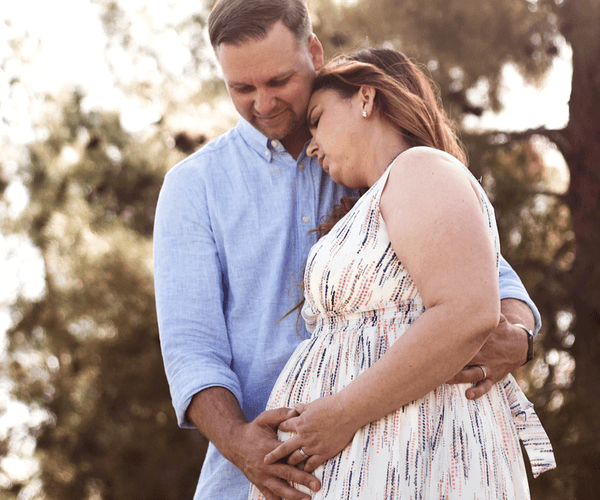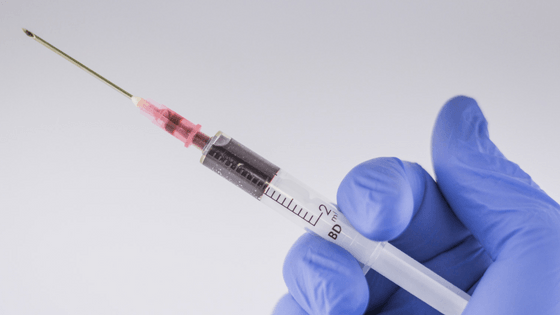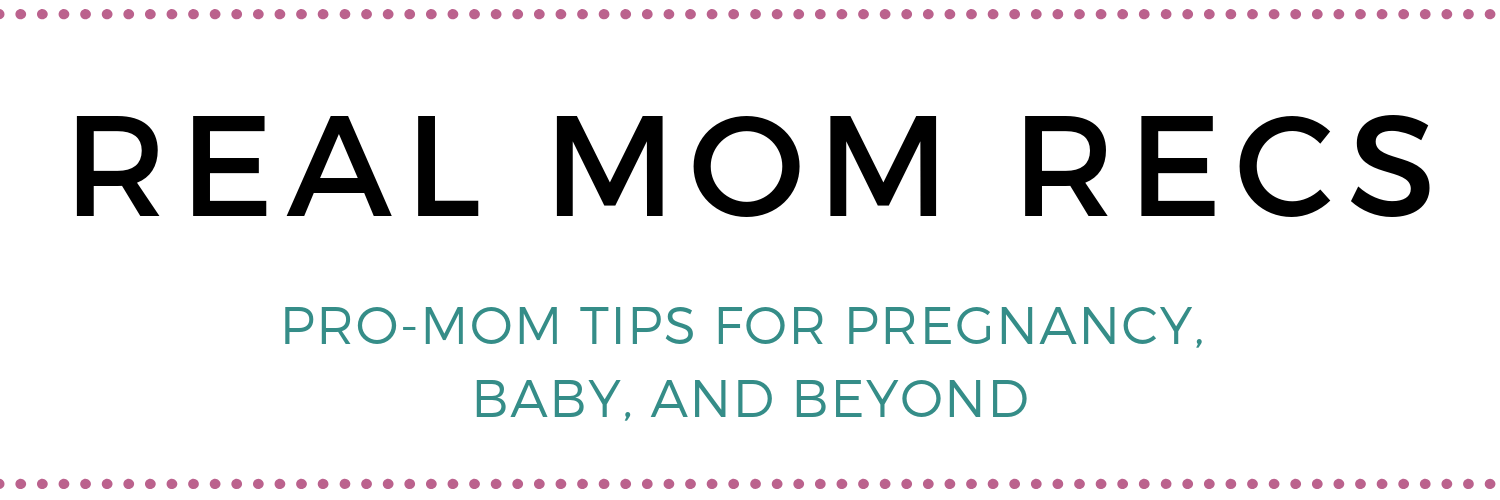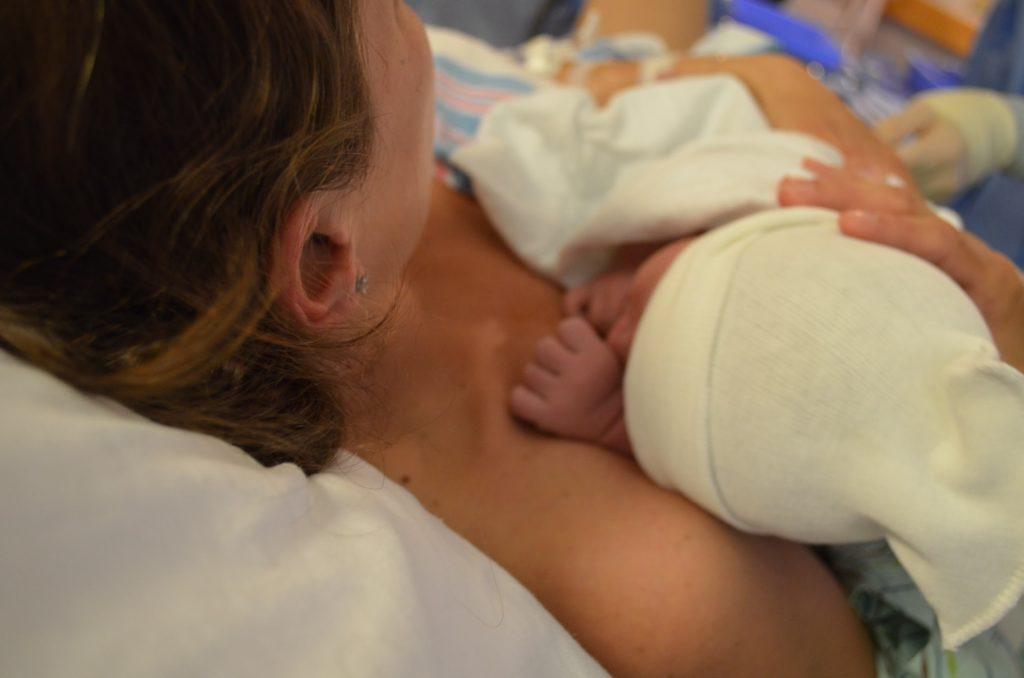When you’re pregnant for the first time, it suddenly hits you how little you actually know about giving birth. As the big day approaches, it is normal for fears to set in. I know before I delivered my first baby, I suddenly had a million birth questions and some of them seemed SO BASIC I was embarrassed to even Google them.
Honestly, everyone wonders about the what is going to happen during labor and delivery and many, many people have the same questions. I gathered up all your not-so stupid childbirth questions and tried my best to answer them from experience. My hope is that some of your fears will be put to rest after this!
Disclaimer: This post contains affiliate links, meaning I may earn a small commission at no extra cost to you.
And if you have a million more questions beyond these, make your life easy and take a birthing class. The best online course I have heard about is by Mommy Labor Nurse, a L&D nurse. Her course is called Birth It Up! and is especially geared towards those who have their heart set on a natural birth. The video modules take about 3 hours to get through and she packs a LOT of great info in.
How do I know when my water breaks?
Watch any Hollywood movie about pregnancy and they’ll have you thinking your water is going to break in the middle of a crowded restaurant or some other equally embarrassing public place.
In reality, most of the time your water breaks when you’re already in the hospital in labor. With my second, I was 5 cm dilated and my water still hadn’t broken, so my midwife actually broke it for me. This is very common!
Still, it can happen that your water breaks out of nowhere at the onset of labor. And there really isn’t any warning before your water breaks in these instances. With my first baby, my water broke in bed at 4 am (thankfully I had prepared and put the waterproof mattress protector on the bed!)
When your water breaks fully, it is a big gush and you won’t mistake it. But sometimes the bag of water only partially breaks, so it comes out as a trickle or slow leak. This is when people get confused and start Googling “did my water break or did I pee?”
There are a few ways to tell the difference:
- One little trickle- possibly pee. A slow leak that continues to trickle out all afternoon? Most likely your water.
- Smell it. Does it smell like pee? Or does it smell like nothing or slightly sweet? (This is what amniotic fluid smells like.)
- Wear a pad and look at the color. If it’s yellowish it’s pee.
- See a medical professional. They can test the fluid and tell you what it is.
What do contractions feel like? How can I tell the difference between Braxton Hicks and real contractions?
Braxton Hicks contractions feel like a soft squeezing or tightening of your uterus, almost like flexing a muscle. They are gentle, irregular, and not painful. By the end of pregnancy you will probably be familiar with them and won’t be alarmed by Braxton Hicks.
Early labor starts out similar to Braxton Hicks because the contractions are not regular and not painful yet. As labor progresses, the contractions get longer, stronger, and closer together. Eventually they will come in a regular pattern and gradually become more intense, which is how you know you’re in labor.

Once you’re in active labor, contractions are gradually become more intense and painful. At this stage, they feel somewhat similar to a calf cramp when the muscle flexes painfully and you can’t get it to relax. If you’ve ever felt that sensation, try to imagine it wrapping all around your waist and that’s pretty much what an intense contraction feels like.
The saving grace of labor is that you get breaks in between contractions. The contraction builds like a wave, stays painful for a minute or so, and then just as quickly dissipates. Then you have a few completely pain-free minutes in between contractions to recover and rest.
How will I know when I’m in labor?
The first signs of labor can be a little vague and it’s normal to be wondering “Am I in labor?”
The tricky part is that they don’t all happen for everyone, and they don’t always happen in the same order. Some early signs include:
- nausea/diarrhea (the body often “clears out” to prepare for birth)
- loss of mucus plug/bloody show (if you don’t know what a mucus plug is, you can learn all about it here but be warned: there are pictures!)
- cramping, back pain, joint pain
- water breaking
- regular contractions that you need to breathe through
The last two are the clear and straightforward signs. The others are just there to confuse you!
How will I know when to go to the hospital?
Call your healthcare provider when your water breaks or when contractions are regular. He or she can tell you whether to stay at home longer or go to the hospital.
Keep in mind that the average first time labor is 24 hours long. There is typically no need to rush to the hospital. You will be more comfortable in your own home for early labor, plus you can eat, drink, shower, and bathe as you please.
Why can’t you eat during labor?
Most hospitals still don’t let you eat during labor because of the possibility you will end up needing a C-section, in which case you could aspirate vomit while under anesthesia. Some hospitals have changed their policies on this, so ask beforehand to see if this is even a concern.
Labor can be long (like 36 hours long) so it’s pretty crazy to think about not eating for that entire time. This is a good reason to stay home during early labor. There you can eat what you want and give yourself some energy for all the work you’re about to do. Stick to something with protein to make you feel fuller longer.
By the time you’re in active labor, you probably won’t feel very hungry so you should be ok with popsicles and Gatorade. That first meal you eat after giving birth will taste positively heavenly though!
Does an epidural hurt?
Words like “pain” and “hurt” are relative terms when you’re in labor. After experiencing childbirth, your entire pain scale is going to be different.
By the time you request an epidural, you are most likely experiencing such painful contractions that the thought of a needle being put into your spine will not scare you. Women would not request this if they didn’t feel it was necessary!
In fact, that’s the exact gage I used to decide when to get the epidural. When I was more afraid of the next contraction than I was of an epidural, that meant I was ready for it.
If your anesthesiologist is kind, they will prep you in between contractions and not do anything when you’re in the middle of one. A tiny needle with numbing medication is inserted first, and you will feel the sting of this one but it’s really nothing worse than a regular shot. The numbing medication will take a minute to set in, and then you really don’t feel much of anything when they put in the larger needle.

The whole process takes just a few minutes and before you know it you are laying there comfortably like nothing ever happened.
If you are planning to go without the epidural, you do your thing! I’m a super wuss so the epidural was in my birth plan from day one. You do what feels right for you, but don’t let fear of the needle stop you from getting an epidural if you want one.
Will I poop during pushing?
So, so many women are scared of pooping during labor and especially during the pushing.
The answer to this question falls somewhere in the range of possibly/probably/does it really matter? I don’t think there is anyone officially collecting data on who poops the table while giving birth, but I think it’s safe to say it happens more than half the time.
For one, during pushing the doctor will actually TELL you to push like you’re having a bowel movement. So it’s pretty natural that you will have a bowel movement if you listen and do it correctly.
If you’re asking because this seems like the most humiliating thing that will ever happen in your life, let me just tell you it won’t be that bad.
Labor and delivery nurses see this every day and they are good at quickly and discretely changing the pads. In all likelihood you won’t even notice because, ahem, you’re pushing a baby out. As for your partner and whoever else is there to support you, well they are there to support you. They probably aren’t looking at your butt and they certainly aren’t there to judge.
The energy in the room during the pushing stage of childbirth is really something amazing. After all the hours you hours have labored, you’re now just moments away from holding your baby! I know poop seems like a big deal now, but in that moment it truly will be the last thing on your mind.
Will I throw up during labor?
This might not seem like a big deal to everyone, but if any of you have emetophobia like me, it is truly terrifying.
I attended both of my sister’s births and had to leave the room quite a few times because she was vomiting. It’s a pretty common thing, and your nurses will tell you it’s a good sign if you’re vomiting because it likely means you’re in transition.
When it was my turn, I didn’t really care if it was a good sign or not, I did NOT want to throw up when I was in labor. And the time did come when I felt the urge. I was able to keep it at bay by putting ice-soaked wash clothes on my face and neck until the nurse came through with the anti-nausea meds.
So to answer the actual question, yes you might throw up during labor and this is normal. But you also might not. If you really don’t want to throw up, get your order for anti-nausea meds in to your nurse early on before you get to transition.
What happens if you pass out during delivery?
This actually wasn’t one of my personal fears, but I have since discovered that a lot of women are scared of passing out during labor.
Passing out not one of the body’s typical reactions to labor pain. Labor is more like an endurance test than a blunt trauma type of pain. Women tend to get exhausted, not faint. If you do feel light-headed during labor and think you might faint, make sure you tell your nurse and she can give you oxygen.

In case you are still afraid of passing out during birth, maybe it will quell your fears to know that women can successfully deliver a baby vaginally while unconscious.
Will I tear during birth?
Unfortunately, tearing during childbirth is very common, especially among first time moms. According to Parents magazine:
First-time moms have a 95 percent chance of experiencing some form of tearing during delivery, since the tissue down there is less flexible. But other factors contribute to your likelihood of lacerations, such as being overweight or having a fast birth, since the tissue has less time to adapt and stretch as baby comes down; the position of the baby (those facing up, for example, put extra pressure on the bottom of the vagina) is another factor. Having a vacuum- or forceps-assisted delivery or an especially long labor that results in severe vaginal swelling increases your chance of tearing as well.
The good news is that the most common type of tear is a second-degree tear (out of a possible 4), meaning that stitches are required but the tear does not extend to the rectum.
Having stitches down there is obviously not the most pleasant feeling, so stay on top of the pain with the prescription you get from the hospital. You will also get some relief from these Perineal Cold Packs (affectionately called “padsicles” among Moms) which stick right into your underwear to keep it all numb down there.
What does giving birth feel like?
Giving birth is incredibly surreal so this is a hard question to answer. I’m sure it’s very different when you’ve had an epidural versus without. You’ve probably heard of the “ring of fire” people describe when the baby is coming out in a natural delivery, which I can only image is a circle of burning pain in your lady parts as they stretch when the baby comes through.
I had an epidural with both of my deliveries and can’t say I’ve experienced anything that I’d call a ring of fire. For me it is somewhat similar to the feeling of pooping, but not quite. For me when the baby is crowning, you feel the stretching and something coming through. But on that last push, when the shoulders and body come out it feels more like a small explosion. Luckily not a painful one, thanks to the epidural. Just a crazy feeling of something passing THROUGH you. Because someone is!
I apologize for not being able to describe it better. It’s just a difficult feeling to put into words.
What is afterbirth?
After the baby is out, your body needs to expel the placenta and fetal membranes. You might be wondering, does delivering the placenta hurt? Let me assure you, there is a good chance you will not even notice it is going on. The baby is so much bigger and harder to deliver, the afterbirth is nothing to hem and haw over.
Additionally, your baby will likely be in your arms and receiving his or her first kisses while the afterbirth is being delivered. This is a huge distraction from what’s going on down there. Your doctor will be paying attention to make sure the entire placenta is delivered, but you will probably be way too wrapped up in your bundle of joy.
They might ask you to do a few little “mini pushes” to get the placenta out, but the effort required is pretty minimal. Sometimes birth attendants will apply pressure to your uterus from the outside to help too, which can be uncomfortable but not extremely painful.
I actually have a photo of myself delivering the placenta, but you can’t really tell what is going on in the picture because the focus is on me enjoying my new baby.
What will my belly look like after the baby is out?
I know I imagined a postpartum belly would look something like a deflated balloon. Immediately after birth, it doesn’t. In reality, it looks just about the same as it did when you were five or six months pregnant. This is because it takes time for the uterus to shrink back down to size and for everything to go back to its place.
With time your belly will shrink back down to size, but it’s hard to say whether or not the skin will look like a deflated balloon. Depending on several factors including your age, fitness level, and genetics, some people’s skin tightens back to what it was before pregnancy. Other people end up with loose skin that never regains the same elasticity. (And I have heard some stories of success getting rid of stretch marks using organic and natural products).
I am so not the type to take stomach after delivery pictures, but luckily other people are! Take a look at some postpartum belly pictures here.
I hope I’ve answered all your most pressing birth questions!
Remember, the more prepared you are for delivery the less scary it will be.
And don’t forget to follow me on Pinterest!






3 comments
This is a great article! So many details of birth are unknown as they aren’t so exciting to talk about or they seem like “too much information”. But knowing what to expect takes so much fear out of the situation!